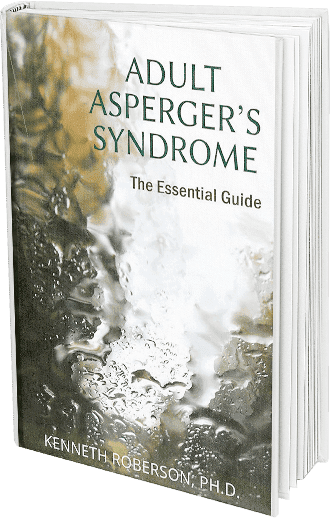
No two adults with Asperger’s syndrome are exactly alike. In fact, there is a wide variety of ways in which this condition presents itself. Some people have certain signs of Asperger’s and others have different indicators. The degree of Asperger’s also varies from person to person.
In addition, Asperger’s syndrome is no longer an official diagnosis. In 2013, the term Autism Spectrum Disorder replaced Asperger’s in the diagnostic classification, as the condition was expanded to include features from both Asperger’s and Autism.
Nevertheless, many people with the condition, together with experts in the field, prefer the term Asperger’s, as it implies a set of features that is both different and less severe than those associated with Autism.
Here is a list of signs and symptoms that are generally associated with Asperger’s in adults. Keep in mind that they do not need to all be present for someone to be diagnosed and they may vary in intensity across individuals.
- LANGUAGE AND SPEECH DIFFERENCES.
Unlike those who are classified as autistic, adults with Asperger’s do not have speech delays or general language impairments. However, they do have communication difficulties. They often have a scripted, formal way of speaking, as if they are talking robotically. They can lack inflection when talking. They may have loud or high-pitched speech and often that speech is repetitive.
- SOCIAL DIFFERENCES
Difficulty socializing and communicating are hallmarks of Asperger’s in adults. They typically struggle to make and keep friends; they lack intuition for what is and isn’t the right thing to say; don’t recognizing humor, irony and sarcasm; have trouble expressing empathy; talk incessantly about a subject while unaware that this is turning people off; and lack awareness of what other people are thinking and feeling.
- OBSESSIVE INTERESTS IN NARROW TOPICS
Common in adults with Asperger’s is a fascination with restricted, fixated interests, for example, tropical fish that live in South American river beds, that are abnormal in intensity and focus. Typically, there is little awareness that others don’t share the same interest.
- INFLEXIBILITY
Change in routine is usually difficult for someone with Asperger’s as is rigidity in thinking and inability to see the perspective of others. Once people with Asperger’s reach a conclusion, they can be quite inflexible and unwilling to change their mind.
- COGNITIVE DIFFERENCES
Commonly, although not uniformly true, adults with Asperger’s are proficient in understanding technical or factual information. They tend to focus on details, often at the expense of recognizing the entire picture. A well-developed memory for material without much reference to the meaning, emotions, or context to which it is associated is often true of adults with Asperger’s.
- SENSORY SENSITIVITES
Sensitivity to loud noises, certain odors, particular clothing, food textures, and lights or movement is also common. These physical symptoms can also extend to motor skills, such as awkward movements, problems with coordination, and overall clumsiness. Those with Asperger’s can be very sensitive to touch and avoid it whenever possible.
- ASSOCIATED CONDITIONS
While not always the case, many adults with Asperger’s suffer from other mental and emotional conditions such as Depression, Anxiety, Attention Deficit Hyperactivity Disorder (ADHD), and Alexithymia (inability to express emotions verbally).
Many adults with Asperger’s see their symptoms positively, as unique talents that set them apart from others, such as the ability to focus intensely, often above average intelligence, exceptional rote memory, a disposition for honesty and fairness, and a singular humor.
Keeping in mind the positive aspects of Asperger’s is both realistic and helpful. Differences, after all, make the wonderous mosaic we call life.




